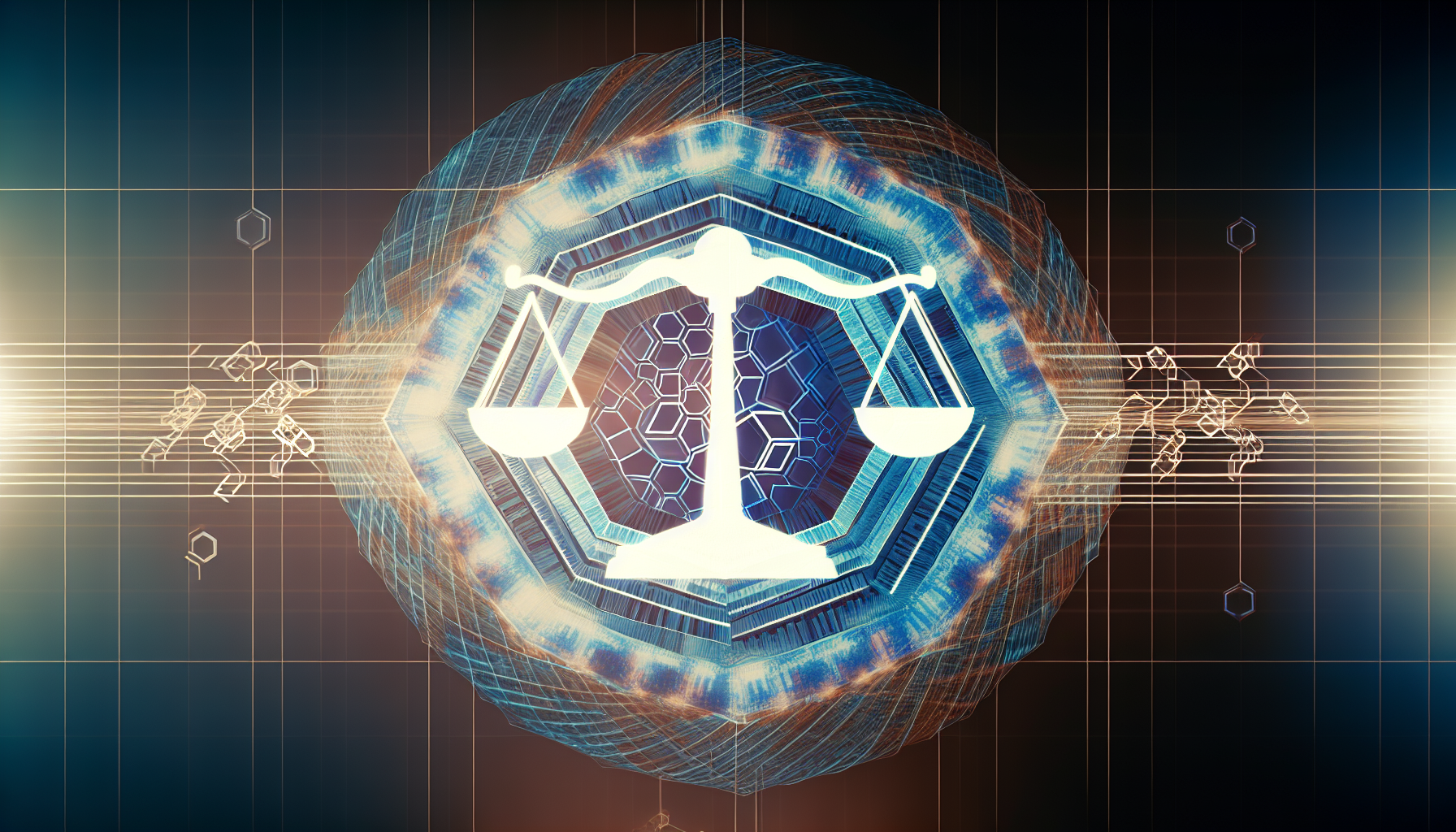Unlocking $4T Sharia Crypto Market: Blockchain ensures halal compliance in finance. #IslamicFinance #Crypto #BlockchainRevolution
- Understanding the Convergence of Blockchain Technology and Sharia Compliance
- The Historical Context of Sharia Compliance in Financial Systems
- Main Insights on Blockchain’s Role in Sharia Compliance
- Challenges in Achieving Sharia Compliance with Blockchain
- The Future Outlook for Sharia-Compliant Digital Assets
- Final Reflections on Blockchain and Sharia Compliance
Understanding the Convergence of Blockchain Technology and Sharia Compliance
In a world where digital innovation is rapidly transforming financial landscapes, the intersection of blockchain technology and Sharia compliance emerges as a pivotal development. Blockchain’s inherent attributes of transparency, traceability, and decentralized community governance offer an unprecedented opportunity to align with Islamic financial principles. This article delves into how blockchain systems, such as the Haqq Network, facilitate compliance with Islamic Sharia Law, ensuring that digital assets are both technologically advanced and religiously permissible.
The Historical Context of Sharia Compliance in Financial Systems
Islamic finance has long been governed by the principles of Sharia, a legal system that prohibits activities such as usury (Riba), gambling (Maisir), and ambiguous contracts (Gharar). Historically, ensuring Sharia compliance in financial transactions posed significant challenges due to the opacity of traditional financial systems and the co-mingling of funds. However, the emergence of blockchain technology offers a transparent and immutable ledger that can verify the Sharia compliance of financial activities, marking a significant milestone in the evolution of Islamic finance.
Main Insights on Blockchain’s Role in Sharia Compliance
Blockchain: A Pillar of Transparency and Traceability
Blockchain technology’s decentralized nature ensures that every transaction is recorded on a public ledger, accessible to all participants. This transparency is crucial for verifying that funds are derived from “halal” or lawful sources, as required by Islamic law. For instance, the Haqq Network, a Sharia-compliant blockchain, leverages this transparency to provide clear records of transactions, ensuring that financial activities adhere to Islamic principles.
Sharia-Compliant Digital Assets: A Growing Market
The global Muslim population, estimated at around 2 billion, represents a significant market for Sharia-compliant financial solutions. As the demand for halal financial products grows, so does the interest in digital assets that comply with Islamic law. Platforms like the Australian-based Marhaba Network and exchanges like Bybit have responded to this demand by offering Sharia-compliant crypto products, including wallets and accounts that adhere to Islamic financial principles.
The Role of Fatwas in Certifying Sharia Compliance
A critical aspect of Sharia-compliant digital assets is the issuance of fatwas, or religious decrees, by Islamic scholars. These decrees certify that specific blockchain platforms, such as Haqq Network, and their associated tokens, like IslamicCoin, comply with Islamic financial law. This certification provides assurance to Muslim investors that their investments align with their religious beliefs.
Challenges in Achieving Sharia Compliance with Blockchain
Navigating the Complexities of Financial Regulations
While blockchain technology offers transparency, navigating the complexities of financial regulations remains a challenge. Ensuring that digital assets comply with both Islamic law and international regulatory frameworks requires ongoing collaboration between blockchain developers, financial institutions, and Sharia scholars.
Overcoming Technological Barriers
Despite blockchain’s potential, technological barriers such as scalability and interoperability can hinder widespread adoption of Sharia-compliant digital assets. Addressing these challenges requires innovative solutions and partnerships to enhance blockchain infrastructure and ensure seamless integration with existing financial systems.
The Future Outlook for Sharia-Compliant Digital Assets
Emerging Trends and Opportunities
As blockchain technology continues to evolve, new trends and opportunities are emerging in the realm of Sharia-compliant digital assets. The potential for blockchain to facilitate equitable and transparent financial solutions aligns with the ethical principles of Islamic finance, paving the way for innovative products and services that cater to the needs of the global Muslim population.
The Role of Education and Awareness
Increasing awareness and education about the benefits of blockchain technology and its alignment with Islamic finance are crucial for driving adoption. By fostering a deeper understanding of how digital assets can comply with Sharia law, stakeholders can unlock new opportunities and empower Muslim investors to participate in the digital economy.
Final Reflections on Blockchain and Sharia Compliance
In conclusion, the convergence of blockchain technology and Sharia compliance represents a significant advancement in the world of digital finance. As platforms like Haqq Network and Marhaba Network continue to innovate and expand their offerings, they provide a blueprint for how digital assets can align with Islamic financial principles. By embracing transparency, traceability, and community governance, blockchain systems offer a promising pathway for ensuring that digital assets are both technologically advanced and religiously permissible. As the demand for Sharia-compliant financial solutions grows, the future of blockchain in Islamic finance looks brighter than ever, offering new opportunities for ethical and inclusive economic growth.
